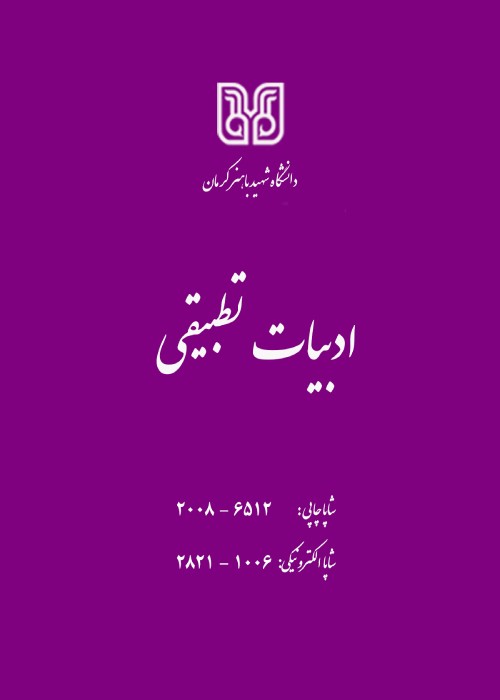A comparative study of the concepts and wisdom and ethical issues In the Mutanabbi divan and Ferdowsi's Shahnameh
Finding common wisdom and ethical themes in the poetry of two contemporary poets, Ferdowsi and Mutanabbi, both of whom are Shiites of Islamic teachings and who have lived in almost the same religious and cultural environment, in addition to innate elegance and artistic inspiration, (If to a degree) familiar with the wisdom and ethics of ancient Iran, the most important purpose of this study is, therefore, the most fundamental questions of this research are:1. In what areas are the two common poetic and moral understandings of the two poets and how did they appear in their poetry? 2. Have Shiite and Islamic sources and teachings and an understanding of the wisdom and moral teachings of ancient Iran and the Islamic era been effective in sharing these issues? It is assumed that because of the historical, religious, cultural, and sources common to both poets, there are many similarities between the ethical and theological themes of the two poets.
This research has analyzed the common and different aspects of the two poets' philosophical and ethical issues through a library method and based on the framework of comparative literature (French school).
Ferdowsi, the poet of wisdom and ethics: Ferdowsi (329-411 AH), He is one of the greatest Persian poets and one of the most famous epic poets in the world. . He has long been known as the sage. Suzani Samarqandi and the author of The Wonderland, both of which lived in the sixth century, - Ferdowsi is called wise in the book of Proverbs of Dehkhoda , More than 3,000 bits of wisdom are provided from the Shahnameh. Ferdowsi is one of the wise poets whose wisdom has ruled throughout his poem . Wise apart from his scientific personality, From today's perspective he is also a psychologist and ethics teacher. Mutanabbi (303-353 AH) is a prominent Arab poet and sage and one of the most influential poets of this language whose poetry is associated with wisdom everywhere. He traveled to Iran in 354 AH at the invitation of Ibn Amid. He stayed in Arjan for a while, then went to Adud al-Dawla in Shiraz. During his stay in Iran, and especially Shiraz, he wrote important poems and pieces Which shows how influential this trip is and how it has changed his poetry. Aqqad says: The wisdom of Mutanabbi is superior to his other poetic exceptions, and this is why he is a philosopher. He has taken the precedent of wisdom from all the poets before him The presence of wisdom in Mutanabbi poetry is so bold ,That Sahib ibn Abbad Collected 370 bits from Mutanabbi poetry Each bit is a proverb.
The common themes of wisdom and morality in Ferdowsi's poetry and Mutanabbi poetry are abundantly observable and analyzed This similarity can be found in theological themes such as rationality, the necessity of self-knowledge, worldly discredit, knowledge and ignorance and many more and and It manifests in ethical concepts including jealousy, rebuke, affection, kindness, patience, humiliation, and so on. There are also differences in the form and style of the work In addition in terms of personality and individuality, including adherence to religious and ethical principles, pride and humility, and so on.
- حق عضویت دریافتی صرف حمایت از نشریات عضو و نگهداری، تکمیل و توسعه مگیران میشود.
- پرداخت حق اشتراک و دانلود مقالات اجازه بازنشر آن در سایر رسانههای چاپی و دیجیتال را به کاربر نمیدهد.



